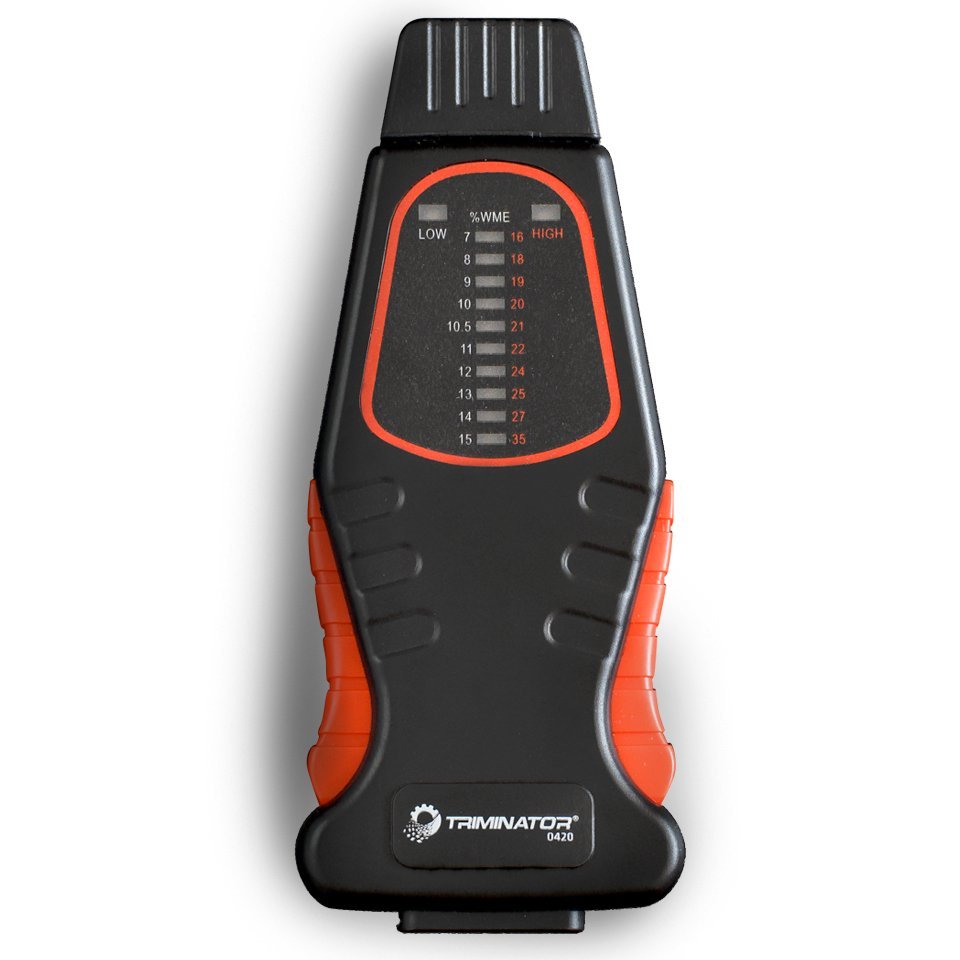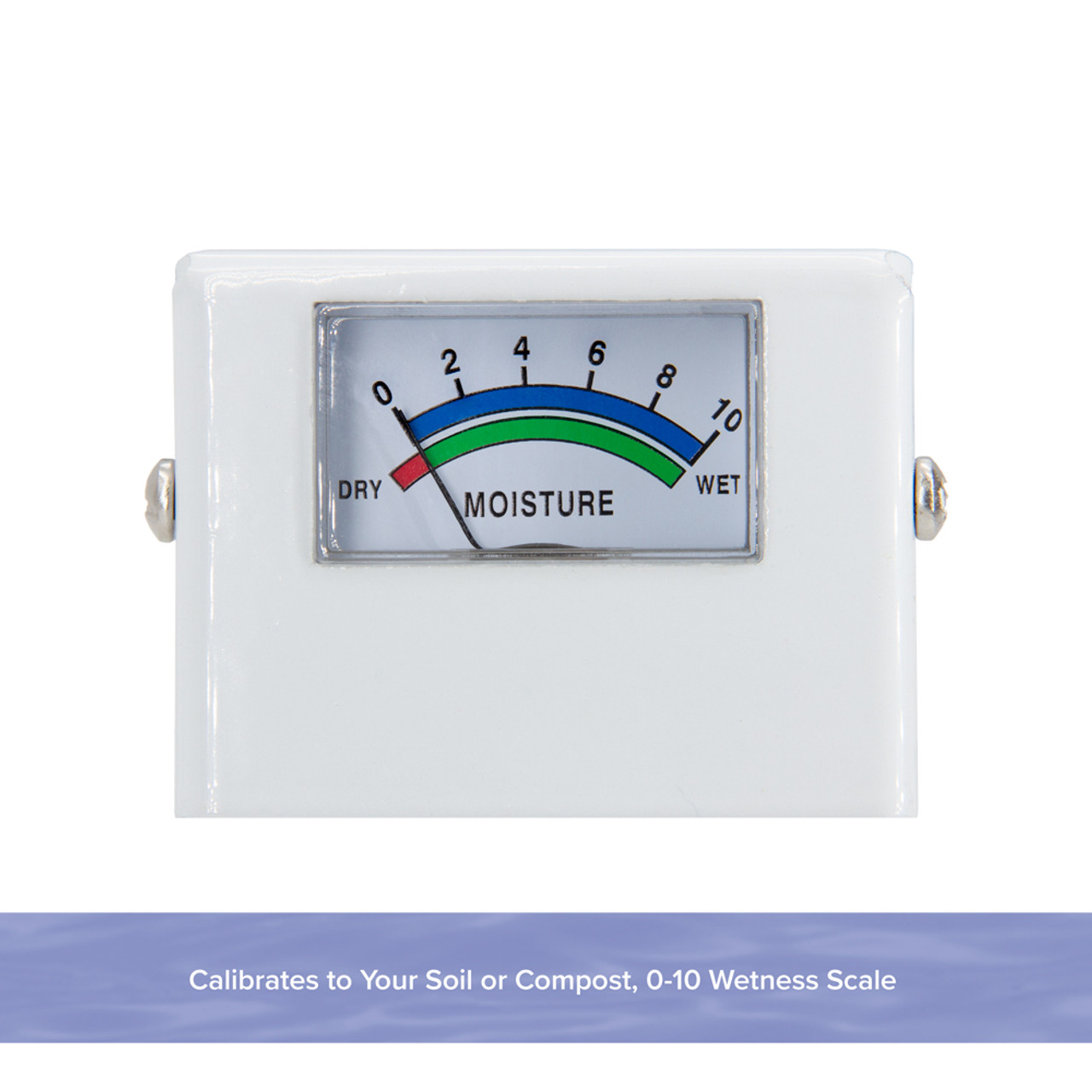Exactly how to Utilize a Moisture Meter to Identify Surprise Water Damages in Your Property
Wiki Article
The Ultimate Guide to Dampness Meters: A Comprehensive Introduction and Exactly How They Can Save You Cash
Dampness meters serve as crucial tools in identifying and keeping track of moisture material in materials, helping in protecting against costly damages and making sure the top quality of items. Understanding the nuances of different kinds of dampness meters, their applications, and the possible cost-saving benefits they use can be a game-changer for experts and services alike.Kinds of Dampness Meters
Different kinds of dampness meters are readily available for various applications in various industries. One usual kind is the pin-type dampness meter, which gauges the electric resistance in between 2 pins put right into a product. This kind appropriates for wood, drywall, and various other structure products. Pinless moisture meters, on the other hand, use electro-magnetic sensing unit plates to check a bigger location without triggering damages to the product's surface area. Moisture Meter. These meters are suitable for swiftly analyzing moisture levels in large locations such as floorings and wall surfaces.
Furthermore, there are additionally specialized wetness meters designed for details materials like dirt, hay, or grain. These meters offer exact wetness analyses tailored to the one-of-a-kind properties of the product being evaluated. Infrared dampness meters measure the thermal buildings of a material to determine its moisture material non-invasively, making them beneficial for applications where pin or pinless meters might not appropriate. Comprehending the different types of moisture meters offered can help markets choose the most ideal tool for their certain dampness measurement requirements.

Benefits of Making Use Of Moisture Meters
Wetness meters offer indispensable benefits in properly checking and assessing dampness levels in varied products and atmospheres (Moisture Meter). Among the main advantages of using moisture meters is the prevention of potential damage triggered by excess wetness. By detecting and dealing with high wetness degrees early, dampness meters aid to protect against mold growth, rot, and structural damage in buildings, saving both money and time on repair work. Furthermore, dampness meters help in making certain the top quality of products throughout building or manufacturing processes. By precisely determining wetness content, these tools help keep the honesty of timber, drywall, concrete, and various other materials, minimizing the risk of defects or failings.
In addition, making use of moisture meters can lead to raised energy efficiency. By recognizing areas with high dampness levels, such as leaks or bad insulation, modifications can be made to boost energy conservation and reduce utility prices. In agricultural settings, moisture meters play an important duty in maximizing plant yields by enabling farmers to monitor soil wetness levels and make notified watering decisions. On the whole, the benefits of making use of wetness meters extend across numerous industries, supplying cost-effective solutions and advertising far better high quality control practices.
Just How to Choose the Right Wetness Meter
Choosing the ideal moisture meter involves thinking about vital factors such as material compatibility, measurement variety, and calibration precision. When picking a moisture meter, it's important to make certain that the meter appropriates for the particular material you will be testing. Different products have differing electric residential or commercial properties that can impact wetness readings, so choosing a meter created for your product is critical for accurate outcomes. In addition, consider the dimension range of the dampness meter. Guarantee that the meter can detect dampness levels within the array needed for your applications. Calibration precision is an additional essential variable to bear in mind. Go with a dampness meter with reliable calibration to make certain precise and regular readings. Some meters may Recommended Reading require routine calibration modifications, so recognizing the calibration procedure is very important. By thoroughly assessing these factors, you can pick a dampness meter that meets your needs and gives precise moisture dimensions for your jobs.Correct Methods for Moisture Meter Use

Price Savings Via Dampness Meter Applications
Just how can the critical use of wetness meters cause considerable expense savings throughout different industries? Moisture meters play an essential role in expense savings by preventing possible damages and guaranteeing quality control in various industries. In the agriculture industry, dampness meters help in identifying the optimal time for collecting crops, preventing excess or over-drying wetness that can influence the last product's high quality. This accurate surveillance assists farmers avoid unneeded go losses and maximize their return.
Likewise, in building and construction, wetness meters aid prevent expensive problems by identifying wetness degrees in building materials, such as timber or concrete, which can result in architectural concerns if not attended to without delay. By determining problem areas at an early stage, service providers can take restorative steps to stay clear of substantial fixings or replacements, inevitably saving money and time.
Moreover, in the food processing industry, wetness meters are crucial for keeping track of product top quality and making certain conformity with security laws. By properly determining moisture material in food, manufacturers can prevent perishing, keep freshness, and reduce waste, leading to substantial cost financial savings. Generally, the strategic application of moisture meters is an important financial investment that can result in significant cost reductions and enhanced performance throughout different sectors.
Verdict
In conclusion, dampness meters are valuable devices for finding and measuring moisture degrees in different products. By using the appropriate moisture meter and adhering to correct methods, customers can properly stop expensive problems caused by excess dampness.Moisture meters serve as important tools in identifying and keeping track of moisture web content in materials, aiding in stopping pricey problems and making sure the quality of items. Infrared dampness meters measure the thermal residential properties of a material to identify its moisture web content non-invasively, making them helpful for applications where pin or pinless meters may not be suitable.Dampness meters offer invaluable benefits in properly assessing and checking moisture degrees in diverse materials and atmospheres. In farming setups, dampness meters play a crucial function in enhancing plant yields by making it possible for farmers to keep Get More Info track of soil wetness degrees and make notified irrigation choices.In final thought, dampness meters are beneficial tools for discovering and measuring wetness levels in various products.
Report this wiki page